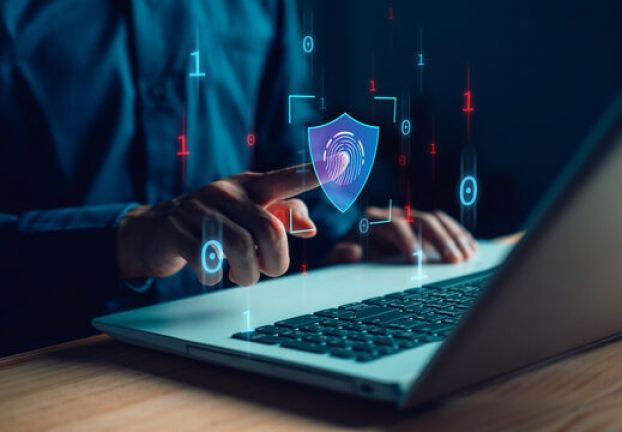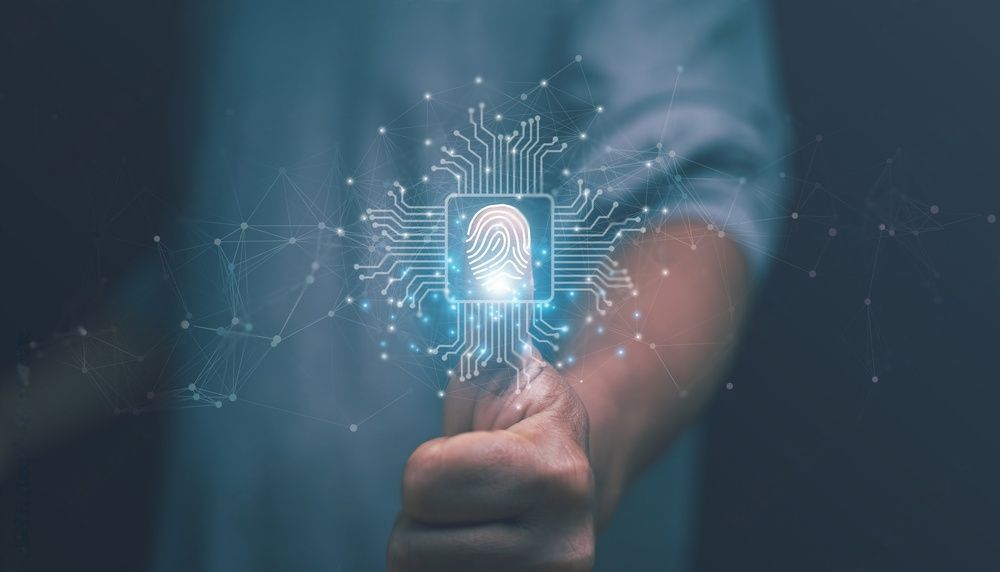Protecting Your Privacy: The Benefits of Counter Surveillance
Introduction
Welcome to the digital age, where our lives are intertwined with technology, our every move leaves a digital footprint, and our personal information is at risk like never before. In this era of convenience and connectivity, the importance of privacy has reached new heights.
It’s like trying to keep your secret recipe for the world’s best chocolate chip cookies safe from cookie monsters lurking around every corner. But fear not! Just as a clever chef guards their recipe, you too can protect your privacy with the power of counter-surveillance.
So, what exactly is counter-surveillance? Imagine it as a secret agent fighting for your privacy, donning a tuxedo made of firewalls and wielding gadgets that would make even James Bond envious. Counter surveillance is the proactive approach to safeguarding your personal information and fending off unwanted prying eyes.
It’s your own digital fortress, equipped with tools, techniques, and strategies to outsmart those who seek to invade your privacy.
Now, you might be thinking, “Why should I care about counter-surveillance? I’m not a celebrity or a secret agent.” Well, my privacy-seeking friend, the truth is, in today’s interconnected world, anyone can fall victim to privacy infringements. Whether it’s the threat of identity theft, online tracking, or physical surveillance, our personal information is more vulnerable than ever before. But fret not, for counter surveillance offers a host of benefits that can help you reclaim control over your digital life.
In this increasingly digital landscape, our personal information has become a highly sought-after commodity. It’s like the shiny treasure in a dragon’s cave, attracting hackers, data brokers, and even governments.
Our online activities, from social media posts to online purchases, generate a wealth of data that can be exploited for various purposes. Companies eagerly collect and analyze this data to create targeted advertisements and tailored user experiences. While personalization can be convenient, it comes at the cost of sacrificing our privacy and relinquishing control over our own information.
Beyond the realms of online data collection, we must also grapple with the ever-present threat of identity theft. Cybercriminals are constantly honing their skills, seeking to steal personal information and financial data to commit fraud or gain unauthorized access to our accounts.
The consequences can be devastating, leading to financial loss, damaged credit scores, and a long and arduous process of recovering one’s stolen identity.
Furthermore, the pervasive nature of online tracking has eroded our ability to navigate the internet anonymously. Have you ever searched for a product online, only to be bombarded with ads for the same item on every website you visit?
This is the result of tracking mechanisms that monitor our online behavior, collect data, and use it to target us with advertisements. It can feel as though our every digital move is being watched, analyzed, and monetized.
Physical surveillance is another concerning aspect of our modern lives. Security cameras are omnipresent, and our movements are often captured and stored as part of a surveillance system. While security measures have their merits, the line between protection and intrusion becomes blurred when our every step is monitored, scrutinized, and potentially used against us.
But fear not, for counter-surveillance comes to the rescue. By taking proactive steps to protect our privacy, we can regain control over our personal information and mitigate the risks associated with online and physical surveillance. Counter-surveillance empowers us to be the masters of our digital lives, enabling us to navigate the interconnected world with confidence and peace of mind.
Throughout this article, we will explore the various benefits of counter-surveillance, from safeguarding personal information to securing communication channels and deterring physical surveillance. By implementing effective counter-surveillance measures, you can reclaim your privacy and assert your digital autonomy. So, let’s embark on this journey
Understanding Counter Surveillance
Countersurveillance refers to the proactive measures taken to protect oneself from unwanted surveillance and unauthorized access to personal information. It involves the use of tools, techniques, and strategies to detect, deter, and mitigate privacy infringements. The primary objective of counter-surveillance is to regain control over one’s privacy, defend against surveillance threats, and maintain a sense of autonomy in the digital age.
Explanation of its purpose and methods:
The purpose of counter-surveillance is to safeguard personal information and prevent unauthorized monitoring or tracking of one’s activities. It involves actively countering surveillance attempts and minimizing the risk of privacy breaches. Counter-surveillance methods can vary depending on the context and the level of surveillance one wishes to counter. These methods may include:
- Encryption : Using encryption tools and technologies to secure communication and data, making it difficult for unauthorized individuals or entities to access or decipher sensitive information.
- Virtual Private Networks (VPNs) : Employ VPN services to create secure and encrypted connections, which hide one’s IP address and encrypt internet traffic, enhancing online privacy and anonymity.
- Anti-tracking tools : Utilizing browser extensions or software that block or restrict tracking mechanisms employed by websites and online advertisers to collect and analyze user data.
- Privacy settings and permissions : Regularly reviewing and adjusting privacy settings on devices, applications, and online platforms to restrict the sharing of personal information and limit data collection.
- Secure communication channels : Using encrypted messaging apps or services that ensure end-to-end encryption, protecting the confidentiality of conversations and preventing unauthorized access.
How it Differs from Traditional Surveillance:
Countersurveillance differs significantly from traditional surveillance in terms of purpose, direction, and control. Traditional surveillance is typically conducted by entities such as law enforcement agencies, intelligence organizations, or private investigators, to monitor individuals or groups for various reasons, including maintaining public safety, gathering intelligence, or gathering evidence for legal proceedings.
In contrast, counter-surveillance is undertaken by individuals themselves to protect their privacy and personal information. It involves proactive measures taken by individuals to detect and prevent surveillance attempts and maintain control over their digital activities.
Countersurveillance is focused on defending against unwanted or intrusive surveillance, whether it be from cybercriminals, data brokers, online trackers, or unauthorized individuals seeking to exploit personal information.
Another key distinction lies in the power dynamic. Traditional surveillance often involves an imbalance of power, where the surveilled individuals may have limited control or awareness of being monitored.
Counter surveillance, on the other hand, empowers individuals to take an active role in protecting their privacy, allowing them to choose and implement measures that suit their needs and preferences.
In summary, while traditional surveillance is conducted by external entities for specific purposes, counter-surveillance is an individual’s proactive effort to safeguard their privacy and prevent unauthorized monitoring. Counter-surveillance puts individuals in control of their data and allows them to actively defend against privacy infringements in the digital age.
Protecting Personal Information

In the digital age, safeguarding personal information has become of utmost importance. Our personal data, ranging from financial records to online activities, holds significant value and can be exploited if it falls into the wrong hands. Protecting personal information is essential for several reasons:
- Privacy and autonomy : Safeguarding personal information allows individuals to maintain their privacy and exercise control over their own data. It enables them to determine who has access to their information and how it is used, preserving their autonomy in the digital realm.
- Preventing identity theft : Personal information, such as social security numbers, addresses, and financial details, can be used by malicious actors to commit identity theft. By safeguarding this information, individuals can reduce the risk of identity theft and the potential financial and emotional consequences associated with it.
- Mitigating fraud and financial loss : Personal data can be exploited to gain unauthorized access to accounts, conduct fraudulent transactions, or manipulate individuals for financial gain. By protecting personal information, individuals can minimize the risk of falling victim to fraud and financial loss.
The Risks Associated with Data Breaches and Identity Theft
Data breaches and identity theft pose significant risks in the digital landscape. When personal information is exposed through a data breach, it can lead to various consequences, including:
- Financial loss : Cybercriminals can use stolen personal information to conduct unauthorized transactions, drain bank accounts, or apply for credit in the victim’s name, resulting in significant financial losses.
- Damage to credit scores : Identity theft can lead to fraudulent accounts or loans being opened in the victim’s name, leading to negative impacts on credit scores and making it challenging to obtain loans or credit in the future.
- Reputation damage : In cases where personal information, such as private messages or sensitive photos, is exposed, individuals may experience reputational damage or embarrassment, impacting personal and professional relationships.
- Psychological and emotional distress : The aftermath of identity theft and the violation of personal privacy can cause psychological and emotional distress, including feelings of fear, anxiety, and loss of trust.
Maintaining Online Privacy
In the digital age, online privacy threats have become pervasive and far-reaching. Individuals’ personal information is constantly at risk due to various factors, including data breaches, cybercriminal activities, and the widespread collection and monetization of personal data. Understanding the extent of these threats is crucial to recognizing the importance of counter-surveillance. Some key aspects to consider are:
- Data breaches : Major data breaches have exposed the personal information of millions of individuals. Cybercriminals target organizations to gain access to sensitive data, such as names, addresses, social security numbers, and financial details. This stolen data often finds its way to the dark web, where it is bought and sold for various nefarious purposes.
- Social media and online platforms : Popular social media platforms and online services collect vast amounts of user data. From tracking browsing behavior to analyzing user interactions, these platforms create detailed profiles that are used for targeted advertising and monetization. The more information users share, the greater the risk of their data being exposed or misused.
- Third-party data sharing : Many websites and applications rely on third-party services and trackers to collect and share user data. This practice allows for the creation of comprehensive user profiles across various platforms, heightening the risk of data breaches and unauthorized access.
Online Tracking and Data Collection Practices:
Online tracking and data collection practices are pervasive in the digital landscape. These practices involve the systematic monitoring and recording of individuals’ online activities and behaviors, often without their explicit consent. Key aspects to consider include:
- Cookies and tracking mechanisms : Websites commonly use cookies and other tracking technologies to gather data about visitors. These technologies allow for the collection of information such as browsing history, search queries, and interaction patterns. This data is then used to personalize user experiences and deliver targeted advertisements.
- Behavioral advertising : Online advertisers leverage user data to create targeted and personalized ads. By analyzing individuals’ browsing habits, demographics, and interests, advertisers can tailor advertisements to specific audiences. However, this practice raises concerns about privacy, consent, and the potential for manipulation.
- Data brokers : Data brokers are entities that collect, aggregate, and sell consumer data to third parties. They compile vast databases containing personal information obtained from various sources, such as public records, social media, and online transactions. The extensive reach and interconnectedness of data brokers increase the risk of personal information being accessible to unauthorized entities.
Securing Communication Channels
Explanation of the vulnerability of communication channels to surveillance: Communication channels, whether digital or analog, are vulnerable to surveillance and unauthorized access. These vulnerabilities arise from various factors, including technological limitations, interception techniques, and the widespread availability of surveillance tools. Here are some key points to consider:
- Interception techniques : Communication channels can be intercepted at various points along the transmission path. This includes interception at the network level, where hackers or surveillance entities can gain access to data packets being transmitted over the internet. It can also involve intercepting wireless signals, such as Wi-Fi or cellular signals, to eavesdrop on conversations or monitor data exchanges.
- Weak encryption or lack thereof : Inadequate encryption or the absence of encryption altogether leaves communication channels vulnerable to surveillance. If the transmitted data is not properly encrypted, it can be easily intercepted and read by unauthorized individuals or entities.
- Compromised devices or networks : Communication channels can be compromised if the devices or networks involved have security vulnerabilities. Malware, spyware, or other malicious software can be installed on devices, allowing attackers to monitor communications or gain unauthorized access to sensitive information.
- Social engineering and phishing attacks : Attackers may employ social engineering techniques or phishing attacks to trick individuals into divulging their communication credentials or sensitive information. This can lead to unauthorized access to communication channels, compromising privacy and allowing for surveillance.
The Potential Consequences of Unauthorized Access to Communication:

Unauthorized access to communication channels can have severe consequences, impacting both individuals and organizations. Here are some potential outcomes:
- Privacy breaches : Unauthorized access to communication channels results in a breach of privacy. Personal conversations, sensitive information, or confidential business communications can be exposed, compromising individuals’ privacy and violating their rights.
- Data theft and exploitation : Access to communication channels can provide unauthorized entities with valuable data, including personal information, financial details, or intellectual property. This information can be exploited for identity theft, financial fraud, or corporate espionage, leading to significant financial and reputational damage.
- Surveillance and monitoring : Unauthorized access to communication channels enables surveillance and monitoring of conversations, activities, and behavior. This intrusion into personal or business communications can result in manipulation, blackmail, or even legal consequences if the intercepted information is used against individuals or organizations.
- Damage to relationships and trust : If communication channels are compromised, trust among individuals or within organizations can be shattered. Personal relationships may be strained, and business partnerships may be jeopardized, leading to the erosion of trust and potential long-term damage.
- Legal and regulatory implications : Unauthorized access to communication channels may violate laws and regulations related to privacy, data protection, and cybersecurity. This can lead to legal consequences, including fines, lawsuits, or criminal charges, depending on the jurisdiction and the nature of the breach.
It is crucial to understand the potential consequences of unauthorized access to communication channels to emphasize the importance of implementing counter-surveillance measures and taking steps to protect the privacy and security of our communications.
Links
When it comes to protecting your privacy and implementing counter-surveillance measures, there are various resources and tools available that can assist you in safeguarding your personal information. Here are some helpful external links to further explore the benefits of counter-surveillance and take proactive steps to protect your privacy:
- Electronic Frontier Foundation (EFF) – https://www.eff.org/ The EFF is a non-profit organization dedicated to defending civil liberties in the digital world. Their website provides valuable information on privacy rights, surveillance issues, and recommendations for safeguarding your online privacy.
- PrivacyTools – https://www.privacytools.io/ PrivacyTools is a community-driven platform that offers recommendations for privacy-focused software, services, and tools. They provide resources and guides to help you enhance your digital privacy and security.
- Surveillance Self-Defense by EFF – https://ssd.eff.org/ Surveillance Self-Defense is an online guide created by the EFF, offering practical advice and tips on protecting yourself against surveillance threats. It covers various topics, including secure communication, encryption, and online privacy.
- Tor Project – https://www.torproject.org/ The Tor Project develops and maintains the Tor anonymity network, which helps protect your online privacy by anonymizing your internet traffic. Their website provides information on how to download and use the Tor browser for anonymous browsing.
- OpenPGP – https://www.openpgp.org/ OpenPGP is a standard for email encryption that allows you to secure your email communications. This website provides information about OpenPGP, compatible software, and implementation guides for secure email communication.
- DuckDuckGo – https://duckduckgo.com/ DuckDuckGo is a privacy-focused search engine that emphasizes user anonymity and does not track or store your search history. It offers a safer alternative to traditional search engines and provides useful privacy tips on their website.
Remember to conduct your own research and exercise caution when exploring external links. It’s important to verify the credibility and security of any tools or services you choose to use for counter-surveillance purposes.
By utilizing these resources and exploring the information available, you can further understand the benefits of counter-surveillance and take proactive steps to protect your privacy in the digital age.
Conclusion
Counter-surveillance offers numerous benefits for protecting privacy in the digital age. By implementing counter-surveillance measures, individuals can:
- Maintain privacy and autonomy : Counter surveillance allows individuals to exercise control over their personal information, deciding who has access to it and how it is used. It helps preserve privacy and autonomy in the digital realm.
- Prevent unauthorized access : Counter surveillance measures help prevent unauthorized access to personal data, reducing the risk of data breaches, identity theft, and financial loss.
- Mitigate privacy risks : By implementing encryption, strong passwords, privacy settings, and other counter-surveillance techniques, individuals can mitigate the risks associated with online tracking, data collection, and surveillance practices.
- Protect sensitive conversations : Secure communication channels and encryption methods ensure the confidentiality and integrity of conversations, preventing unauthorized interception and surveillance.
- Safeguard personal and professional reputation : Counter surveillance helps prevent reputational damage that may result from privacy breaches, unauthorized access, or the exposure of sensitive information.
Take Proactive Steps to Safeguard Personal Information:
It is crucial for individuals to take proactive steps to safeguard their personal information and protect their privacy. Here are some key points to encourage individuals to be proactive:
- Stay informed : Stay updated on the latest privacy risks, data breaches, and counter-surveillance techniques. Educate yourself about privacy laws and regulations to make informed decisions about safeguarding personal information.
- Implement strong security measures : Use strong, unique passwords and enable multi-factor authentication for online accounts. Regularly update software, operating systems, and applications to patch vulnerabilities.
- Be cautious with sharing personal information : Exercise caution when sharing personal information online, particularly on social media platforms. Be mindful of what information you disclose and who can access it.
- Review privacy settings : Regularly review and adjust privacy settings on devices, applications, and online platforms. Limit data sharing and control who can access your personal information.
- Use encryption and secure communication tools : Utilize encryption techniques, secure messaging apps, and virtual private networks (VPNs) to enhance the security of your communication channels and protect sensitive conversations.
- Be vigilant against phishing and social engineering : Be cautious of unsolicited messages, emails, or phone calls requesting personal information. Be aware of common phishing tactics and avoid sharing sensitive information unless you have verified the legitimacy of the request.
- Regularly monitor accounts and credit reports: Monitor your financial accounts and credit reports for any suspicious activities or unauthorized transactions. Report any discrepancies immediately to mitigate potential damage.
By taking proactive steps and adopting a privacy-focused mindset, individuals can significantly enhance their privacy and protect their personal information from surveillance and unauthorized access. Safeguarding personal information is an ongoing effort that requires vigilance, awareness, and the implementation of counter-surveillance techniques.
















